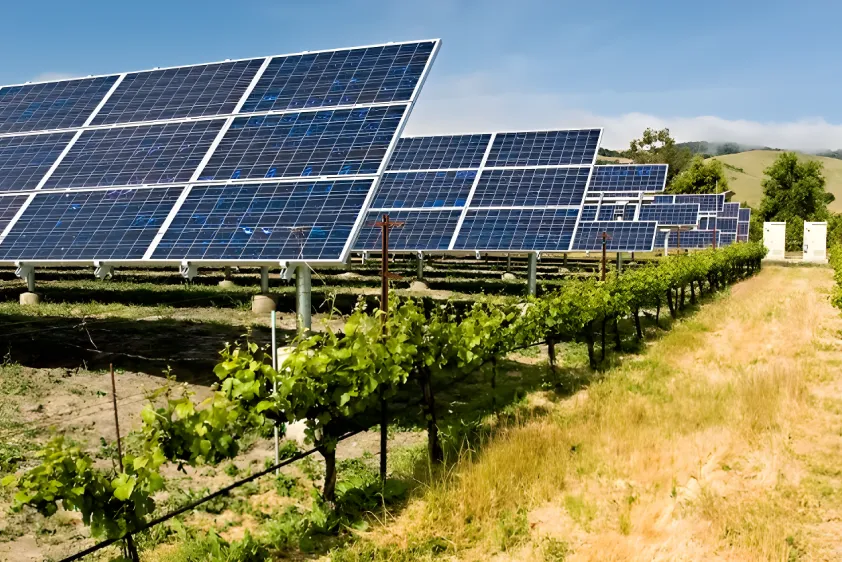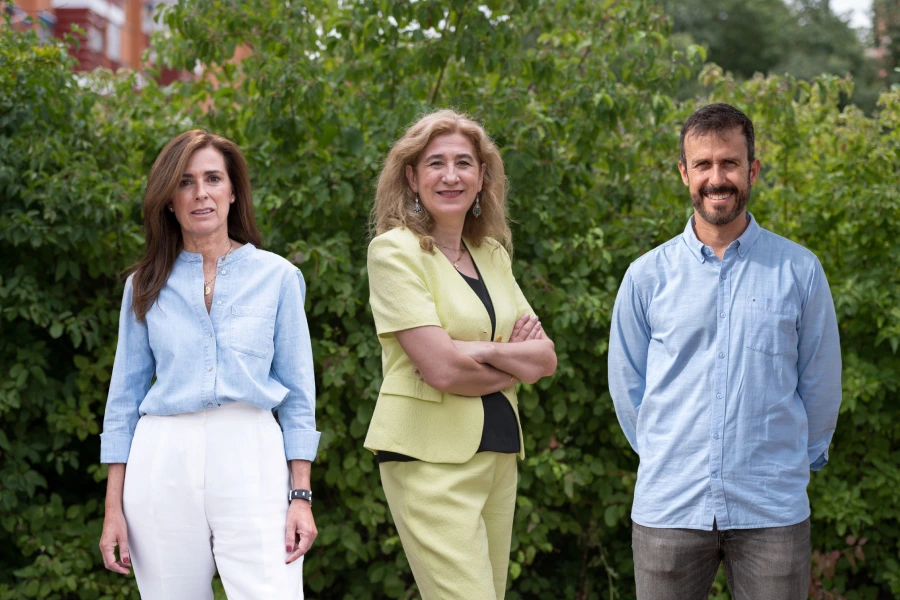RENEWABLE ENERGIES AND RURAL DEVELOPMENT: DRIVING A SUSTAINABLE FUTURE
The benefits of renewable energies in rural areas
In recent years, depopulation has been increasing in many regions. In an effort to recover industry and thus population, renewable sources serve as an incentive to revitalise village life

Iberdrola España supports the link between the primary sector and renewables
Renewable energies are key to Iberdrola Group's decarbonisation project, of which Iberdrola España is part. But they are also key economic elements for the viability of villages. In a challenging context marked by the decline of jobs in the agricultural and livestock sectors in recent years, renewables emerge as a great solution to revitalise the region's economy. According to a study conducted by the consultancy firm Metyis, the implementation of a solar plant or a wind farm in a town of less than 10,000 inhabitants increases income by 16% on average – 4 points more than without these installations.
The main challenge with these new industries is their impact on the region’s nature and also their influence on the primary sector. For this reason, Iberdrola España clearly supports the development of energies that coexist with and contribute to primary sector activities in rural areas.
Sustainable Development in Rural Areas
Iberdrola España is a pioneer in blending the two worlds, using, for instance, bifacial solar panels that allow livestock to graze under them, as well as agriculture, although this must vary due to the new conditions. These projects have already spread across the Spanish countryside and are contributing to creating smart villages – less dependent on big cities, and beneficial for the more rural regions.
The main challenge at present is the high cost of their implementation; however, this cost will be reduced as more places use this type of installation. Iberdrola España is also working on the use of solar plants as sites for pure honey production; for instance, the organic solar honey collected at Campo Arañuelo plant.
Wind and solar plants, important assets in the fight against depopulation
The growing demand for energy consumption in recent years has driven the potential expansion of wind farms and solar plants in our country. Under this premise, industries in areas suffering from depopulation enable recovery and increase indirect jobs related to the plants.
Given the weather and geographical conditions of our country, both solar and wind power plants are part of the fight for decarbonisation. These projects are supported by the European Union through aid and subsidies.
Iberdrola and the rural world
The development of solar plants and wind farms is only one part of Iberdrola España's work to support rural areas in Spain. We are strongly committed to sustainable development and rural revitalisation, as well as to the use of new technologies, such as agrovoltaic energy. This type of energy maximises the land's yield by intelligently integrating solar panels into agricultural and livestock farming environments. By combining technology and sustainable agriculture, agrovoltaics contributes to food security and climate change mitigation.
We also carry out different initiatives and projects. For instance, the summer micro-cinema festival, which highlights the quality of life in small towns and promotes the cultural offer through a selection of micro-cinema audiovisual productions; or the 'Innovation and sustainability in rural areas' challenge, which is part of PERSEO start-up programme, to promote the recovery of natural spaces in depopulated areas of Spain and Portugal.







